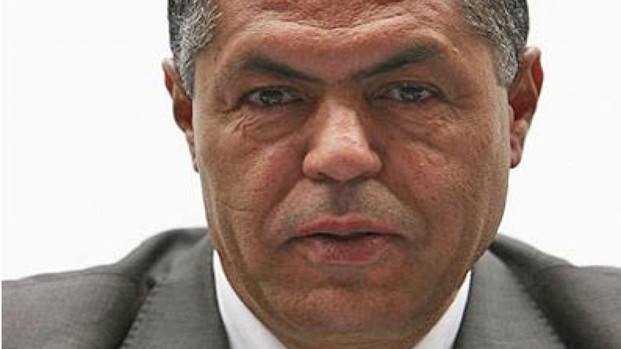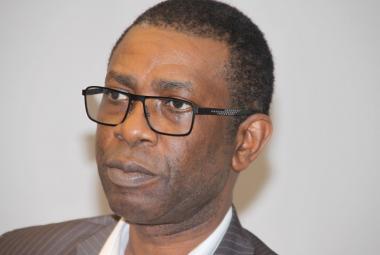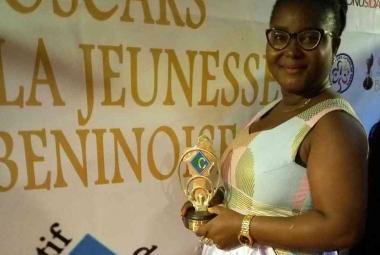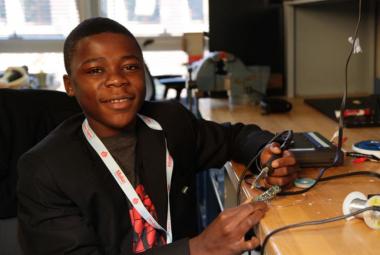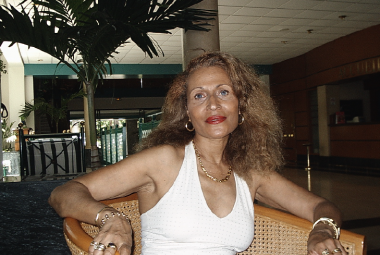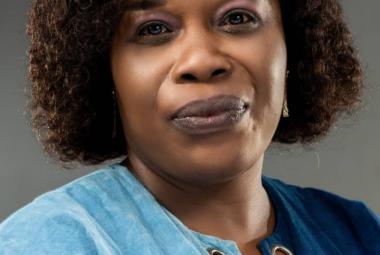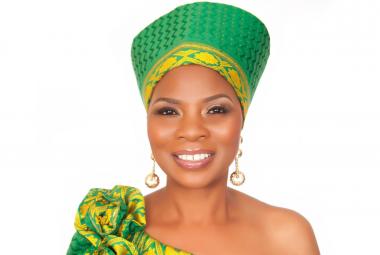Iconoclastic but insightful, graduate in Anthropology, Psychoanalysis, Philosophy and Political Science, the essayist of Algerian origin Malek Chebel, ardent defender of an "Islam of the Enlightenment", died on Saturday November 12 in Paris of cancer at the 63 years old. But he bequeathed an immense work to posterity and allowed many people around the world to better understand that Islam is something quite different from Jihadism and Terrorism.
Anthropologist of religions, psychoanalyst Malek Chebel was an intellectual and a specialist in Islam known throughout the world. This Algerian of origin, had made the option of dusting off the texts of Islam and making them as accessible as possible. To give Mohammedans and all those interested in Muslim society tools to better understand this religion and avoid all the amalgams that surround it and make many people fantasize. Including some Muslims.
On November 12, 2016, Malek Chebel died in Paris at the age of 63, following cancer. His body will be returned to his native Algeria to rest where he was born in 1953, in Philippeville, now called Skikda.
After a Baccalaureate, option Philosophy and Arabic Letters, Malek Chebel began his university studies in 1973 at the University of Constantine in Algeria. When he defends his Bachelor's thesis in Clinical Psychology, he is the valedictorian of his class. It was with a scholarship granted to him by the French Consulate in Algiers that he arrived in France in 1977, more precisely in Paris. A first Doctorate in Clinical Psychopathology and Psychoanalysis at the University of Paris in 1980. And a second Doctorate in Ethnology at Jussieu in 1982. And Malek Chebel will not stop there. In 1984, he completed a third doctorate in political science at the Institut d'études politiques in Paris (Institute of Political Studies in Paris).
Malek Chebel is internationally famous for being the author of several educational works on Islam in particular and the Translator of the Koran. L'islam pour les nuls et Le Coran pour les nuls (Islam for Dummies and The Koran for Dummies), which were a bestseller after the deadly attacks in Paris in January 2015, are among his publications.
Moreover, shortly after this resounding Charlie Hebdo attack, he reacted by invoking the fact that the Muslim community was itself hostage to the monster that terrorism has become. Also, he had, with the insight and intelligence that characterized him, insisted on telling the press that the Muslim world had taken time to recognize the roots of evil: “Islam is not in question (…) It is the Muslims who misinterpret it who must be isolated and silenced,” he continued to declare.
Through his role as a Teacher, but also as a Speaker, Malek Chebel has endeavored throughout his life to transmit his Knowledge for a more tolerant world through its peoples towards each other. Among other high places of his teaching, we can mention his lectures in Europe, in the Arab world and in the Americas in many: in universities; University of Paris Sorbonne-Paris IV in France, University of Marrakech in Morocco, Universities in Tunisia, Higher Institutes in Egypt, Universities of Berkeley and Stanford, in San Francisco, at UCLA in Los Angeles, at CUNY in New York, Rockefeller University in New York in the United States, the ULB in Brussels in Belgium, etc.
Explain Islam and not impose Islam
Malek Chebel had created his Review. The magazine Noor, (light in Arabic) had the vocation from its birth to bring if not light on Islam at least lights. Indeed, the concept of "the Islam of enlightenment", he held there as the apple of his eye. To the point of making it his primary vocation. “It is a question of evoking modern Islam, that of tolerance”, explains the Algerian writer, author of around thirty books devoted to Islam and its place in society. “The problem, he analyzes, is that Muslims most often leave the monopoly of speech to the most extremists. Moderates complain that they have no place to express themselves. I told myself that instead of victimizing yourself, it was better to create your own space for reflection”. Thus he confided in the French journalist and writer Pierre Cherruau.
Malek Chebel was a strong supporter of the debate. You had to be able to explain and convince rather than wanting to impose your religion. Even at the risk of making it repulsive. For him, the question is simple: “We need to establish a real dialogue. I mean a free debate, the main thing is that the speakers have quality arguments”. As much as he had no problem expressing his religious beliefs, he felt that religious parties had nothing to do in the political arena. And to assert bluntly: “They failed in Egypt. Religion must remain in the private sphere”. L’essayiste n’était pas à l’abri des critiques. Loin s’en faut. Il était taxé par des islamistes d’avoir une conception plutôt libérale de la religion. Pour autant, ils n’avaient pas des arguments plus convaincants pour déstabiliser ce chercheur qui en savait beaucoup sur l’Islam, jusque dans les arcanes. Porté par sa foi et ses convictions, il a continué à professer son un « Islam des Lumières » qu’il appelait aussi de « l’Islam moderne ». Malek Chebel avait aussi publié, entre autres, Mohammed, prophète de l'islam, L'islam et la raison, L'Erotisme arabe, ou L'islam en 100 questions (Mohammed, Prophet of Islam, Islam and Reason, Arab Eroticism, or Islam in 100 Questions).
He liked to write and worked a lot. Following the publication of his book Cent questions sur l'Islam, Ed. de La Boétie (One hundred questions about Islam, Ed. de La Boétie ) in which he gave the reader tools to understand this religion which sometimes frightens the French, Malek Chebel confided: "I love to do pedagogy. There are no taboo subjects. I even regularly broach the subject of sexuality. But it's true that my freedom of tone means I'm frequently frowned upon by dignitaries from the Arab-Muslim world. Strangely, my books are translated into about fifteen languages, but not into Arabic. I am rarely invited to lecture in the Arab world and I have never been offered a seminar at university in Algeria, the country where I did the first part of my higher education".
Decorated Knight of the Legion of Honor in 2008, when Nicolas Sarkozy was President of the French Republic, he had declared to him: "Thanks to you, France discovers, or rediscovers, an Islam which knows and loves life, the desire, love, sexuality”. Previously, in 2004, he also received the Prize for Believers' Writers for his book Manifeste pour un Islam des Lumières (Manifesto for an Islam of Enlightenment).
Today, the Malek Chebel Foundation chaired by his son, Mikaïl Chebel, is responsible for perpetuating the memory of this illustrious anthropologist, psychoanalyst, philosopher, specialist in political science and thinker of his time. And as she herself points out: “The Malek Chebel Foundation is a great educational project around a vision of the world in pursuit of the lights of reason. We put our joie de vivre at the service of our aspiration for a tolerant and open society, where living together is based on understanding and knowing each other. It is up to civil society to seize the definition of its common life project, to draw a humanist and universalist face. The Foundation presents itself as a vector of communication and exchange, which intends to make resonate the ideas which share the ambition of the gathering and the fraternity”.
Malek Chebel Foundation
Address: 63 Way of the Sculptors, 92800, Puteaux, France
Mail: fondationmalekchebel@gmail.com
Website: https://www.fondationmalekchebel.com/
By Abdul Yazid



